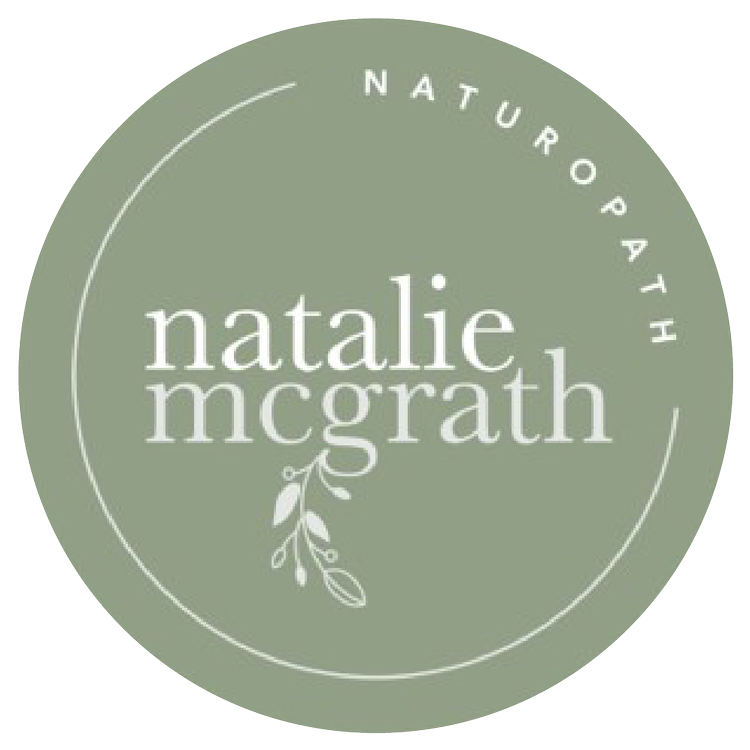Unlocking the Secrets of Quality Sleep: How Much Sleep Do You Really Need?
Understanding the Importance of Sleep
Sleep is not merely a state of rest; it’s a vital component of overall health and well-being. Just like the Tooth Fairy and Santa bring magic in the night, our bodies undergo a plethora of essential processes during sleep. But how much sleep do we truly need?
Debunking the Myth: Recommended Sleep Duration
Research suggests that adults require 7 to 8 hours of sleep each night for optimal health. However, considering the multitude of tasks our bodies undertake during sleep, more may be better. Adequate sleep allows the body to engage in crucial processes such as rebuilding, repairing, detoxifying, processing, and regulating various functions.
The Consequences of Sleep Deprivation
Despite the known benefits of sufficient sleep, many individuals suffer from sleep debt due to inadequate rest.
Exploring the Impact of Sleep Debt
- Decreased Psychological Well-being: Sleep-deprived individuals often experience negative emotions such as unhappiness, anxiety, and sluggishness, along with difficulty concentrating and making decisions.
- Compromised Physical Health: Lack of sleep weakens the immune system, making individuals more susceptible to illnesses like the common cold. Additionally, sleep deprivation can lead to increased fat mass, disrupted hormone regulation, and decreased thyroid hormone production.
- Cognitive Impairment: Sleep deprivation negatively impacts memory, cognitive function, and decision-making skills, affecting academic and professional performance.
- Heightened Inflammation: Chronic sleep deprivation contributes to increased inflammation, a major risk factor for chronic diseases such as cardiovascular disease, diabetes, obesity, and mental illness.
Prioritising Sleep for Optimal Health
Incorporating adequate sleep into your daily routine is essential for overall health and vitality.
Practical Tips for Enhancing Sleep Quality
- Establish a Bedtime Routine: Set a consistent sleep schedule and create a relaxing pre-bedtime routine to signal to your body that it’s time to wind down.
- Limit Electronic Devices: Minimise exposure to screens and electronics before bedtime, as the blue light emitted can disrupt melatonin production and interfere with sleep.
- Practice Relaxation Techniques: Engage in relaxation practices such as deep breathing exercises, meditation, or gentle stretching to promote relaxation and prepare your body for sleep.
- Create a Sleep-Conducive Environment: Ensure your bedroom is dark, quiet, and comfortable, with a supportive mattress and pillows.
- Avoid Stimulants Before Bed: Limit consumption of caffeine and alcohol in the hours leading up to bedtime, as these substances can interfere with sleep quality.
By prioritising sleep and adopting healthy sleep habits, you can unlock the transformative power of quality rest and experience improved health and vitality.
Disclaimer: This information is for educational purposes only and should not replace personalised medical advice. Please consult with a healthcare professional for individualised recommendations.
The Magic of Sunshine: Unlocking Vitality and Health
Vitamin D: The Sunshine Vitamin
In our modern world, where indoor living and sun protection have become the norm, the importance of sunshine on our health cannot be overstated. Vitamin D, often referred to as the “sunshine vitamin,” plays a crucial role in numerous bodily functions, acting more like a hormone than a vitamin.
Understanding Vitamin D Deficiency
Despite its significance, Vitamin D deficiency has become a prevalent health concern worldwide, with alarming rates even in sun-rich regions like Australia. Many factors contribute to this epidemic, including decreased outdoor time, sun safety measures, and lifestyle changes.
Australian World Champion Women’s Surfer Sally Fitzgibbons serves as a poignant example, highlighting that even those with sun-kissed lifestyles can suffer from Vitamin D deficiency. This underscores the importance of assessing sun exposure and addressing potential deficiencies proactively.
Sunshine Beyond Vitamin D
While Vitamin D is undoubtedly vital, the benefits of sunshine extend far beyond its role in synthesising this essential nutrient.
Harnessing the Power of Sunshine
- Improves Immunomodulation: Sun exposure stimulates photoreceptors in the skin, fostering communication with the immune system and promoting its optimal functioning.
- Enhances Nitric Oxide Production: Just 20 minutes of sunshine exposure leads to the release of nitric oxide, which can lower blood pressure and improve insulin resistance.
- Provides Antioxidant Protection: Sunlight triggers the release of powerful antioxidants, guarding against the damaging effects of free radicals.
- Facilitates Melatonin Release: Sun exposure stimulates the production of melatonin, a potent antioxidant and anticancer agent that also regulates blood pressure and glucose tolerance.
- Regulates Circadian Rhythm: Exposure to natural light helps regulate the sleep/wake cycle, promoting overall health and well-being.
- Boosts Endorphin Production: Sunlight stimulates the production of endorphins, the body’s natural feel-good hormones, promoting a sense of well-being and happiness.
- Supports Appetite Regulation and Metabolic Health: Sun exposure triggers the release of hormones that suppress appetite and improve metabolic syndrome.
Embracing Sunshine Safely
While sun safety remains paramount, it’s essential to strike a balance and reap the benefits of sunshine sensibly.
Incorporating Sun Exposure Into Your Routine
- Find Opportunities for Sun Exposure: Incorporate outdoor activities into your daily routine, such as enjoying lunch outside or spending time at the park with your children.
- Practice Sensible Sun Protection: Aim for brief sun exposure before applying sunscreen, ensuring you expose enough skin without risking sunburn. Opt for natural sunscreens to protect against harmful UV rays without compromising health.
Embracing Sunshine for Lifelong Wellness
Sunshine is not merely a source of warmth and light; it’s a vital component of optimal health and vitality. By embracing sun exposure sensibly and reaping the myriad benefits it offers, we can harness the transformative power of sunshine to enhance our well-being.
Are you ready to bask in the rejuvenating rays of sunshine? Reach out to Natalie McGrath, Naturopath, to learn more about optimising your health through natural approaches.
Disclaimer: This information is for educational purposes only and should not replace personalized medical advice. Please consult with a healthcare professional for individualized recommendations.
Unlocking the Secrets of Sustainable Weight Loss
Understanding the Complexity of Weight Management
Weight loss is often portrayed as a simple equation of calories in versus calories out. However, the reality is far more complex. If weight loss were easy, we wouldn’t be facing the obesity epidemic that plagues society today.
At my Naturopathy clinic, weight loss is consistently one of the most desired goals among patients, second only to increasing energy levels. The impact of weight issues extends beyond physical appearance, affecting mood, energy levels, and overall vitality.
Exploring the Factors Behind Weight Struggles
Achieving and maintaining a healthy weight can be challenging due to various underlying factors:
Caloric Imbalance: Consuming too many calories while not engaging in enough physical activity remains the primary cause of weight gain. Research indicates that individuals often underestimate their food intake by up to 50% and overestimate their level of physical activity.
Thyroid Dysfunction: The prevalence of thyroid disorders is on the rise, contributing to unexplained weight gain and metabolic slowdowns. An underactive thyroid can impede metabolism, making weight loss efforts incredibly challenging.
Adrenal Dysfunction: Modern lifestyles characterised by chronic stress can lead to adrenal issues, resulting in the production of stress hormones like cortisol. Elevated cortisol levels promote fat storage as a survival mechanism.
Gut Health and Microbiome: Emerging research suggests that gut microbiota composition influences weight regulation. Certain types of bacteria in the gut may predispose individuals to weight gain or leanness.
Hormonal Imbalance: Hormones play a significant role in weight management, with estrogen dominance being a common concern. Imbalances in estrogen and progesterone levels can lead to weight gain, mood disturbances, and menstrual irregularities.
Inflammation: Chronic inflammation, triggered by factors like food sensitivities and environmental toxins, can disrupt metabolism and promote fluid retention, hindering weight loss efforts.
Liver Congestion: A congested liver can compromise fat breakdown and digestion, leading to weight gain and feelings of heaviness and sluggishness.
Sleep Quality: Poor sleep habits can disrupt hormonal balance and metabolism, making weight management more challenging. Prioritizing quality sleep is essential for overall health and successful weight loss.
Embracing a Holistic Approach to Weight Loss
Weight loss is a multifaceted journey that requires a holistic approach. It goes beyond simply counting calories and involves addressing the underlying obstacles that hinder progress.
Personalised Care for Lasting Results
If you’re struggling with weight management and seeking sustainable solutions, I invite you to schedule an appointment with me. Whether in person or via Zoom, I’ll work with you to identify the obstacles preventing you from achieving your health goals and develop a personalised plan to support your journey to optimal well-being.
Weight loss may not be easy, but with the right guidance and support, it’s achievable. Let’s embark on this transformative journey together.
Disclaimer: This information is for educational purposes only and should not replace personalised medical advice. Please consult with a healthcare professional for individualised recommendations.
Relief From Painful Periods
Painful Periods (or the technical term Dysmenorrhoea) are very common but are not normal and a sign that things may be out of balance. There can be some discomfort with your periods, but they should be relatively pain free. It amazes me when I have clients that have suffered painful periods their whole life and they thought it was normal.
Interestingly, painful periods are one of the leading causes of female school and work absenteeism. So relieving painful periods can have a huge impact. Who wants to put their lives on hold every month? Pain may begin before or at the start of the period, usually peaks after 24 hours, and decreases after 48 hours.
WHAT CAUSES THE PAIN:
Getting to the bottom of why you may be suffering painful periods can be complex. If the pain is very severe and cannot be managed with over the counter pain medication then it may have a more serious cause like endometriosis or adenomyosis. If this is the case I strongly recommend seeing a practitioner that specialises in female health.
But generally, painful periods are mostly caused by an excessive amount of prostaglandins.
When you get your period, it’s the time of your cycle when the lining of your uterus starts to break down. There is a release of a natural chemical called prostaglandin which is an integral part of this process but if there is too much of this chemical you can have problems. Prostaglandins in excess are very inflammatory. Inflammation causes pain.
SIGNS AND SYMPTOMS ASSOCIATED WITH PAINFUL PERIODS:
- Moderate to severe cramping and abdominal/pelvic pain beginning with the onset of period and lasting 8-72hours.
- Dull or dragging pain radiating to lower back, groin, legs
- Headache and/or migraine
- Nausea and/or vomiting
- Diarrhea
- May have IBS symptoms pre-menstrually with constipation and/or diarrhoea Tender breasts, swollen abdomen
TREATMENT OPTIONS:
Here are some of the treatment options that can alleviate the painful periods. If you try these things and don’t get any relief then seeing a practitioner that specialises in women’s health is paramount.
1). Eliminate Dairy
This is the first thing I suggest for my clients because it can have profound results. With in one menstrual cycle we can see results. Many people struggle digesting dairy, this then creates inflammation in the body and can result in painful periods.
2). Remove High Histamine Foods
This is my second call to action with people you have painful periods. Some people struggle with breaking down the histamine in their diet, this can be due to a lot of reasons like gut health and nutrient deficiencies. When histamine accumulates in the body in can create painful periods, plus headaches, anxiety, insomnia, brain fog, rashes and fatigue.
If removing dairy and high histamine foods don’t do the trick then I may have to food sensitivity testing to see if there is anything other inflammatory triggers.
Excess estrogen can be a massive driver of histamine in the body plus it can create havoc in other ways. Balancing estrogen to a health level needs to be done under the care of a practitioner.
SUPPLEMENTS TO HELP WITH PAINFUL PERIODS
I always believe that if you are going to take any supplements its best to see a qualified naturopath to guide you in the right direction with products and doses.
1). Zinc
Zinc my most favorite mineral. Lets just call is “Super Star Mineral.” It can help in so many ways but specifically for painful periods it works as an effective anti-inflammatory and reduces the prostaglandins.
2). Magnesium
Magnesium is a very close second in my favoutite minerals list. Magnesium is the master relaxer mineral. It helps relax your body, mind and your uterus so it can reduce the excessive period cramoing. It also works at reducing the pain causing prostaglandins.
3). Natural Anti-inflammatories
Turmeric can work it magic on painful periods. Turmeric has a myriad of health benefits and being an effective anti-inflammatory is one of them. Fish oil has been found to reduce period pain by 30% after 2 cycles. It does this be reducing inflammation in the body.
Like Ive said a few times now, if you don’t get relief with a few of these suggestions please see a qualified naturopathic practitioner who can guide you in the right direction.
The Issues With Becoming A Vegetarian Or Vegan
I recently presented a workshop about nutrition and mental health with a group of teenagers. There were 38 kids in total and I was nearly knocked off my feet when I asked if any of them were vegetarian or vegan. 16 said that they were.
Wow, that’s over 40%
This really concerns me. Only 2 of them were aware about the issues of vitamin B12 deficiency.
There is a massive movement for vegetarianism and veganism at the moment and I get it. Our younger generation (and not just the younger generation) are trying to do what they think is the right thing, but at what cost to their own health.
There are cultures in the world that being vegetarian is the norm. This I don’t have a problem with as its been carried through generations this type of eating. They usually eat a wide variety of plant food that contains different protein sources to sustain a healthy diet. Also, their cooking methods and storage of food is conducive for bacteria growth and this supplies them the natural source of B12 and other nutrient needs.
Being a modern-day vegetarian or vegan is hard work. Let’s be clear animal protein is jammed packed with protein and essentials nutrients that we need. It is a big job to reach the equivalent amount of nutrients just with plant foods. It can be done with knowledge, expert supervision, time and meal planning.
Let get back to these kids, most have become vegetarian or vegan in the past 12 months. As a general rule they cut of out animal products and just fill the space with not so healthy food. To stay satisfied they usually fill themselves up with carbohydrates like bread and pasta.
Recently I had a 16 year old female patient come see me with mental health issues. Her doctor has put her on anti-depressants with no blood work or further discussions.
This teenager started a downward spiral of anxiety, depression and fatigue 6 months ago and guess what she became a vegan 2 months before then.
We followed up with some blood tests and found her iron extremely low and her B12 dangerously low. Both of these nutrients essential for so many functions especially energy and mental well-being.
I have found people that do go down the vegetarian/vegan journey can feel amazing for the first few months as they are taking a load of the digestive system (as protein can be quite difficult to digest) but a few months down the track this is when the nutrients start to run out including protein. Protein is essential for many processes including metabolism, blood sugar regulation, neurotransmitter production to just name a few.
You can also run the risk of being coming deficient in a range of nutrients as well. Even animal protein eating people run the risk of running low of these nutrients so you can imagine how the risk can be a very real one for vegetarians and vegans.
VITAMIN B12
The biggest concern for me is Vitamin B12 deficiency. The risks are real and can be irreversible. B12 is sourced primarily from animal proteins and very minimal amounts are found elsewhere.
Vitamin B12 deficiency can lead to fatigue, mental health issues, lack of concentration, neurological issues, tingling, visual loss, plus a myriad of other symptoms.
IRON
Another risk is becoming deficient in Iron, which can lead to symptoms such as fatigue, mental health issues, palpitations, shortness of breath, restless legs.
My advice for people considering becoming vegetarian or vegan is to get professional guidance from a
naturopath or nutritionist. Its most likely that you will need to take a nutritional supplementation, especially B12.
It is also paramount to have regular blood work done every 6 months to make sure your nutrient levels aren’t dropping and that your supplement regime is adequate or that you aren’t overdoing it.
Resistant Starch – Fuelling The Microboiome
USING RESISTANT STARCH TO FUEL THE MICROBIOME
Resistant starch is a type of fibre and is one of the fuel sources that feeds our amazing microbiome. It gets its name from being resistant to digestion and when it arrives in the large intestine this is where it gets to work. It promotes fermentation of short chain fatty acids, which then promotes the production of a compound called butyrate, which plays a key role in promotion of gut health and general well being.
BENEFITS OF RESISTANT STARCH
- Promotes intestinal barrier integrity
- Decreases toxin absorption
- Decreases abdominal pain wand IBS symptoms
- Enhances insulin sensitivity
- Upregulates mitochondrial function, therefore it increases metabolism
- Reduces inflammation
- Increases weight loss
Interestingly, the way you prepare starch-containing foods affects their starch content, as cooking or heating destroys most resistant starches. However, you can “recapture” the resistant starch content of some foods by letting them cool after cooking.
Foods high in Resistant Starch.
1) COOKED AND COOLED POTATO
If prepared correctly and left to cool, potatoes are a good source of resistant starch.
I like to cook them in bulk and have half a cup of cooled potato in salads. With some herbs and spices they are my favourite. Its important to have them cold as this will contain significant amounts of resistant starch.






